41 minutes
History and Stories
Last February I had a long chat with Benoit Desgroseillers, Senior director at Finance Montreal. Benoit has a background in history and works as a Senior Director at Finances Montreal whose mission is to develop and promote Québec’s financial services industry. Following my curiosity, I wanted to have his opinion regarding the place of finance in our society.
We had a great discussion which allowed us to expand our thinking and gave us more tools to see certain aspects of society with more clarity. I share it here hoping you will benefit from this thought exchange.
Summary
Three main ideas came out:
- Information asymmetry weakens us
- Education and wealth redistribution are keys for a good society
- Constraints are required to grow
Or in other words:
- If you have no knowledge, those with the knowledge may take advantage of you
- If you have all the balls in the playground you can’t play with the other kids anymore
- If you eat all the food you had for the month today, you will starve
Those ideas were explored by discussing the following topics:
- Summary
- Bitcoin, Blockchains & Cryptocurrencies
- How Financial Technology Will Impact Us?
- Mass Education Against the Opacity in the Finance Industry
- Wealth Redistribution and Education: the Pillars of a Prosperous Society
- The Human is a Ball of Emotions
- Constraints Are Requirements for Growth
- Ending Words and Idea Labs
Here’s the revised transcript translated from French. Enjoy !
Bitcoin, Blockchains & Cryptocurrencies
[Benoit] What cryptocurrencies casually offer us is a revolution in the system. Regarding Bitcoin, to speak only of this cryptocurrency, we have to look at what was the motivation of the people who started it. It came from libertarians and anarchists. Somehow they wanted to defeat the system, to break it. Not in the sense of the French Revolution but they wanted to have an alternative.
[me] That’s what makes it so particular, it’s the creation of an alternative saying, “Here’s an ecosystem completely disconnected from the main system”. Even if both systems live in parallel for now. The technology is self-standing and allows to have something growing on its own, in its zone. People are free to use it.
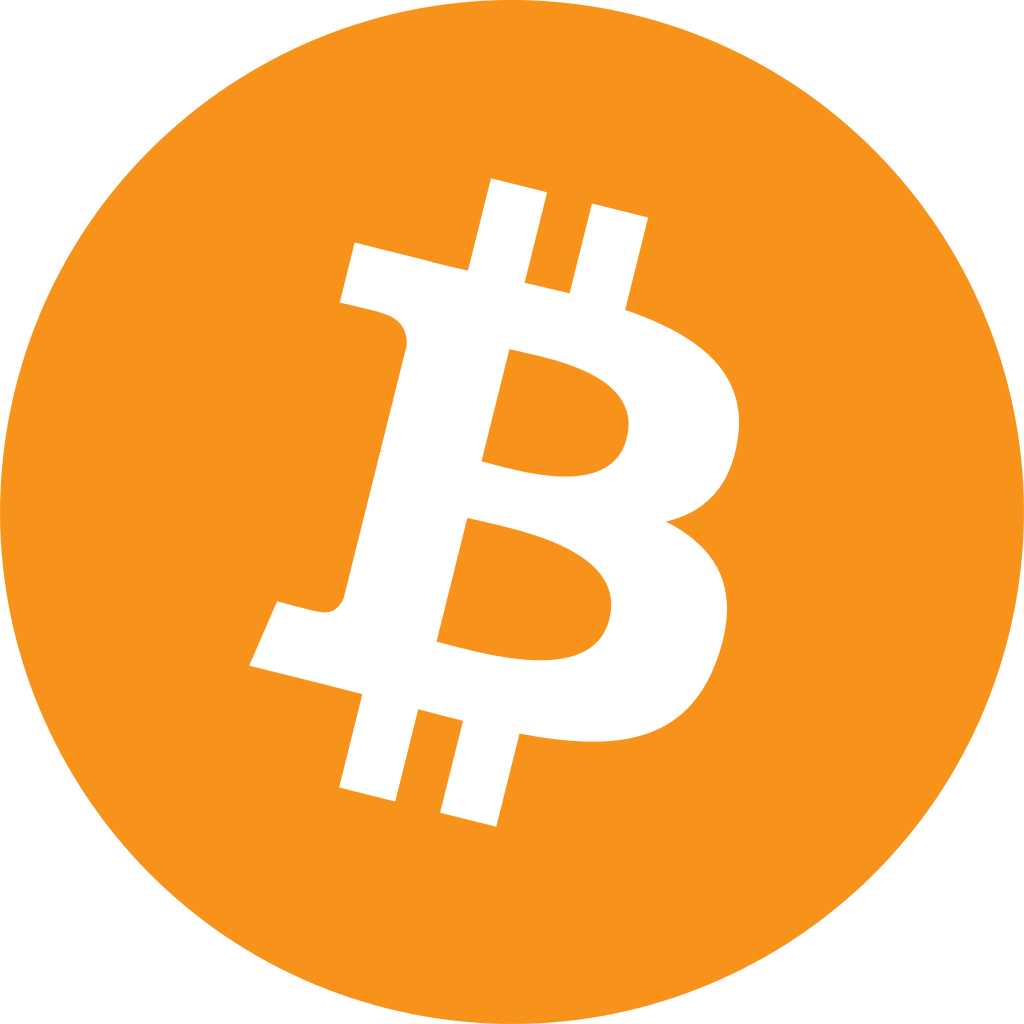
People's money - Source
Exactly. Without central banks. Well for sure if you take a look at the very definition of money in general, and once again I insist I am no economist, but as an observer here at Finances Montreal and with the number of people I meet, I ended learning a thing or two: one of the principles of money is to be supported by a central bank. It’s negotiated with exchanges rates from currency to currency. It’s used to buy goods and services on a regular basis, in a very simple way. That’s money.
Cryptocurrencies say, “well I can do just the same”. Yes and no. What we have essentially observed with Bitcoin for 10 years is a strange object, highly speculative up to now, relatively hard to buy and sell for most people, and not used to buy many things because the payments paths are limited.
That’s the beginning. At the beginning of anything there are problems to fix to have viable solutions. However, for the present time, if we speak about Bitcoin, at the best of my knowledge, it is a curiosity. Besides there is kind of a rumor of control by an Asian entity who would have manipulated the price 2 years ago during the run up to setup an infamous pump and dump. Did a small group influence the market to do that? Maybe, I don’t know.
But two years ago, out of pure curiosity, I decided to buy a piece of bitcoin. Since I am relatively well connected in the finance world (we organize conferences and activities with experts), I’m in the ideal social environment to buy a bitcoin, right?
So, I call an expert, a star speaker and I tell him, “listen, I’d like to buy bitcoin”. He tells me “no problem” and sends me the website. I get a link and the first thing I am asked is to send a copy of my passport, my ID and my address, it’s crazy. The first step to identify the customer, is to give your identity to a website you don’t know. You have no idea where it is hosted, probably in a country where Canada has no jurisdiction. In short, you are giving most of your social intimacy to a third party whom you do not know. Then you are sent a key and this key, don’t lose it because it is the only proof that you have bitcoin.
I just imagine my grandmother doing that, we are still quite far from what a currency is.
How Financial Technology Will Impact Us?
Nonetheless, if we put money on the side and focus on the blockchain, the removal of the third party revolutionizes not only finance but notaries and lawyers as well. In fact, everyone who acts as a third party. And this, this has a huge potential for disruption
Imagine today you are a chartered accountant, a CPA, you are an auditor, you validate books, you validate accounts, what do you actually do? You validate papers, pdf, excel and word files then validate that things are consistent with each other. Your work tool is an office tool that has existed for 30 years.
Now imagine a relatively short future, 5-10 years, you are going to audit a blockchain, what do you actually audit? An algorithm. Meanwhile you are a CPA. Your training at the bachelor level, at the master’s level, at the level of the unified exam of the Order, never taught you about blockchains and programming. It is another language for you. The impact on this profession is enormous and this is just an example.
Yes, and there are many others. Technology now enables read/write processes and analysis using data we had not before in a fast and automatized fashion.

Fintech brings people closer to financial services - Source
Absolutely, our industry, like other industries, already lives this process automation in the way you just described. But we live it in its first stages. We already knew how to do those things manually, but we do them faster at a lower cost. So, with two gains.
Which allows to offer more services. Since we gain some time with certain aspects, we have more time to go into more detail in others.
What’s good with the tech revolution in general and once again I focus on our industry, the one I know the best, is that we are starting to focus on customer centricity. It is this idea that the customer is at the hearth of your processes. Presently we have auto-justified processes, surviving because they exist and existing because they survive. A vicious circle where the customer exists, but where the process priority is the process itself and not the customer. For proof, just open a bank account: it takes hours, it requires you several documents, maybe one or two visits to the branch. Now we are instead starting to focus on the customer.
Meanwhile if you compare it to opening an email account, it is instant, you go the website, you enter your name and it’s done. It actually could be similar with bank accounts.
It could. And now start-ups, fintech start-ups, are setting the pace with those KYC (know your customer) processes who validate that “you are who you say you are”. Like you said, opening a web account takes 30 seconds. Today opening an online brokerage account will take a few minutes, not a few hours or days and be less expensive. Why? Because we think first about the customer needs and capacities.
You were saying earlier that you read about psychology, economics and finance, that you were observing the big trends. What the author and Nobel prize Daniel Kahneman revealed is that our cognitive biases impact the world economy. (See my article on the subjet here)
The start-ups may not know that, but they understood that if you simplified things as most as possible and thought like the customer by offering him the least constraints at the lowest cost, you had demand. You have customers and you have an emerging market. This is what is percolating as an attitude, as a philosophy, as a will among the great players.
Obviously, they do it bit by bit. For example, one group will say you don’t need to come to the local branch anymore to open account. They do it bit by bit, but they do it.
And here I can draw a lame parallel with the taxi industry and the arrival of Uber. Uber is forcing the taxi industry to be rethought. And I have a lot of grievances against Uber, I’m not a fan at all. On the other hand, as a taxi customer, I take a lot of taxis for work, I can say there is a huge difference between before Uber and after Uber. Huge. Before Uber, courtesy is an option. Before Uber, half the time I couldn’t pay with a credit or debit card, the device didn’t work or there was no more paper. Now there is an obligation to be functional. Taxis are cleaner. There is a client element that Uber has forced and that is a bit what fintech start-ups do for big players.
Maybe to summarize all that I’d say: we are in the process of removing friction in the interaction processes between the customer and the financial world. This will ultimately force the world of finance to be closer to the customer and will allow more people to get access to financial tools. This may render certain notions less opaque as well. We could imagine that all kinds of financial products that were previously complex, would be closer to the customer.
If we imagine money as a tool to store the value that we have produced in order to buy goods or services, this means that the individual is made more powerful since he has more tools to manipulate its money.
That’s good because in the end the people are at the heart of the economy, of course there are financial companies but ultimately the economy is driven by the individuals, who produce things or services and buy goods.
By decreasing the friction, I have the impression we see some kind of evolution of the present economy in the sense that we accelerate this value exchange process. Financial exchanges are more simplified, faster, cheaper, etc. I don’t think we realize it very well, but in ten to fifteen years, it could revolutionize the way the economy interacts, it would be much more fluid, and things would flow faster and better.
Mass Education Against the Opacity in the Finance Industry
Yes, and we can draw a parallel with mass education after the Renaissance in the West. There is indeed a question of apparent and real opacity in our industry. And we must not delude ourselves, there is a democratization of finance which is taking place. We see it in start-ups but also via the increased access to information, the multiplication of social media platforms.
People exchange advice, people exchange insults too (laughs) but that’s the negative side. There also exist echo chambers where people see only what they want to see, this too is a problem, it is very negative. But if we look at the positive side, information is circulating and there is increasing literacy.
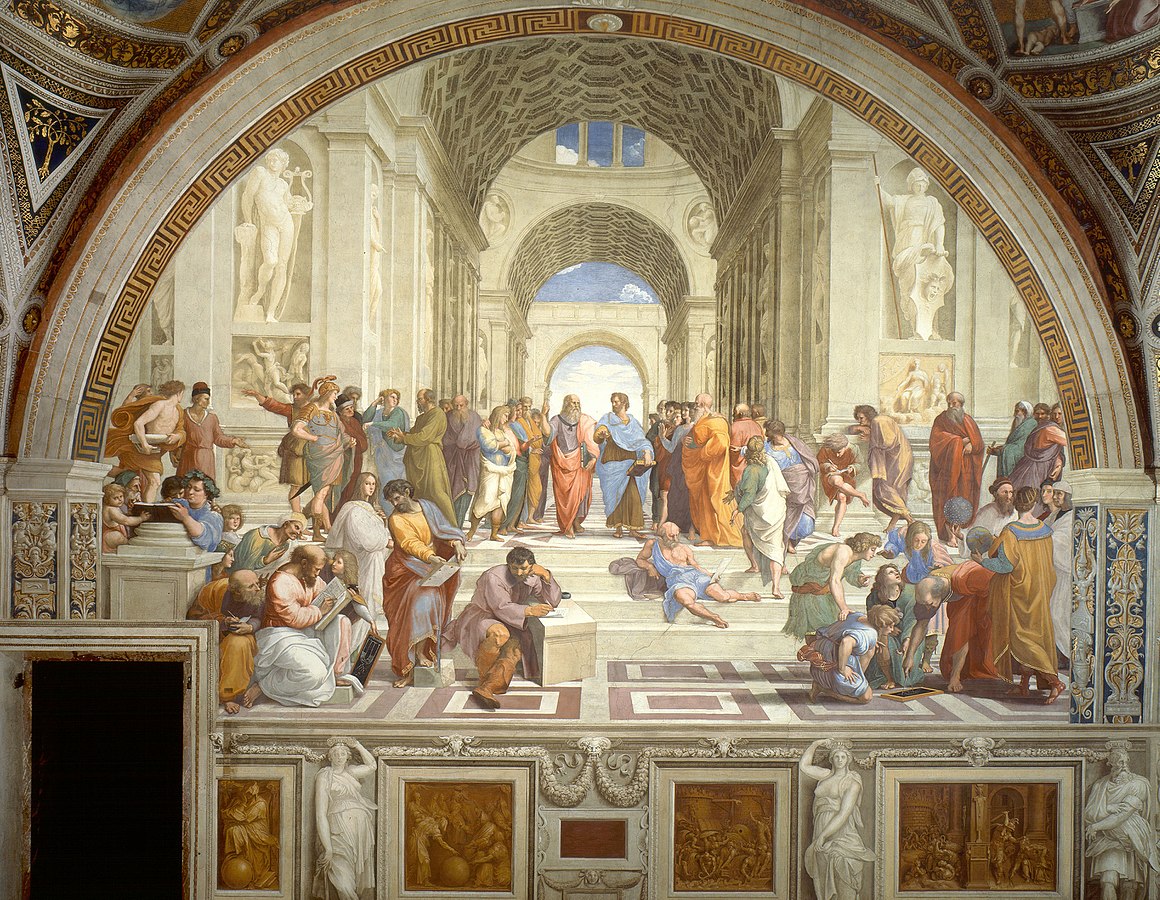
The School of Athens, an iconic painting of the Italian Renaissance - Source
By the way, financial literacy is one of the major axes of our Young committee that we launched yesterday. We start with activities at elementary school because we want to make them better citizens, who will perhaps find a job somewhere in our industry, but that’s not the priority. The priority is that if we have informed people, who make a budget, who respect their borrowing and spending capacities, we will collectively have more wealth. There is this idea of having a mass of knowledgeable, competent people who are able to get what they need fairly quickly.
In addition, if people are competent, they are less susceptible to be exploited by other people who have the expertise. So, regarding the opacity you mentioned earlier, people would have more confidence because they are themselves in charge. There would be fewer people who benefit from information asymmetry. I would say that it strengthens the system because the system is more “just”, there is less exploitation of this asymmetry.
Wealth Redistribution and Education: the Pillars of a Prosperous Society
This is a very personal opinion. I believe in two things for maintaining democratic achievements and for maintaining global balance: wealth redistribution and education. These are the two main tools that human history has brought us as fundamental tools for our happiness.
What is happening right now with globalization is that unfortunately there is a concentration of wealth in some places. Automatically when this phenomenon happens, you see marked distinctions in social groups: there are the educated and the uneducated, the urban and the non-urban, and populist phenomena as we see everywhere. And these phenomena appear more in places where there is less wealth redistribution, where the mechanisms of wealth redistribution are less present and less solid.
What you are talking about interests me a lot because the fact that people can access simple technological tools, to seek, to meet their needs, among other financial needs, implies that they have been educated, that we generate wealth. So, there is kind of a virtuous circle here which is exactly the opposite of certain trends in certain parts of the world, where we do not necessarily want to favor popular education or higher education. We are instead concentrating wealth where it already exists. And there you have a vicious circle.
An inverted cycle which benefits a minority who has the knowledge. A bit like in the time of the Church where only clerics knew how to read. If just a minority of people are able to read, that minority is able to learn things while others can not. The minority has power over the others.
It is a little bit the same phenomena in finance: if a minority has the financial literacy, they will advance all alone with this tool. In fact, it is probably what’s been happening since the 80s up to now: opacity has allowed the creation of obscure tools that make it possible for some to capture wealth without this being very well known. We are going in the reverse direction of wealth creation.
I would also add this increasing financial literacy could be increased by the cryptocurrency phenomenon. As an individual, my financial literacy has increased because I became interested in Bitcoin and started being curious about the concepts of money and currency. And many people who are interested in Bitcoin are led to ask these questions and increase their literacy. It has then a ripple effect: if you increase your literacy and tell your friends, theirs increase. Socially it benefits everyone.
Yes, and in reality, since you mention the religious element, let’s go back to the Reformation, to the printing press in the 15th, to Gutenberg and the Protestant Reformation. There is a desire at that time to make sure that people can access the conten. At that time the content is the Bible. You had an elite who knew how to read and who interpreted it, I imagine in their favor (laughs, chances are), at the expense of the rest.

Martin Luther posting his 95 theses on the church door in Wittenberg, Germany - Source
It’s totally human to want more, to want more power, to want more money, to have more. We fight against that, our deepest nature is to be constantly dissatisfied. And therefore, the dissemination of knowledge, limits the kind of insider knowledge and therefore the chances of being exploited by these insiders.
It’s really a good parallel. I agree that human nature says, “I always want a little more”. Except that when there is an asymmetry of information, those who want more will be able to have more much faster than those without knowledge. On the other hand, if knowledge is shared, even if everyone still wants more, everyone rises as there are less asymmetries. We acquire more collectively without the existence of too large imbalances.
Youtube is a good example, though completely anecdotal. YouTube is knowledge democratization. Yes, there are videos of kittens, videos of guys who fall on the ice, well it’s nice. But there are also tutorials for a thousand and one things. Do you want to make a double Windsor tie knot? Youtube. How did I repair my pool filter? Youtube. Some pool repairer lost 150$ in Montreal, because I watched a 5” video on how to repair my pool filter. So, there is really a democratization of knowledge that has an impact on the life of people.
We are individually with our cellphones, perhaps not more intelligent, but infinitely more informed. Imagine for example someone who leaves his country. Imagine C. Columbus, he left with the equivalent of a bible, which is not of much use to navigation. Maybe some notes gleaned here and there. He had not much information. He had no GPS, no Youtube tutorials, he didn’t have the whole knowledge library on his boat.
He probably had some books about geography and navigating, etc. but limited compared to all the knowledge there was in the past. He just had some bribes of history to help himself but not everything there was.
We have absolutely everything. If you can read and write, if you have access to the Internet, if you have a tablet or a phone that is a bit modern, you have access at your fingertips, in seconds, to virtually all the empirical knowledge of humanity.
It’s overpowered (laughs).
Converting Information to Knowledge
The challenge was often accessing the information. Now the challenge is filtering it: there is too much information. It’s a challenge for sure but the gift is enormous. The huge tool we posses is this information, that knowledge.
We may not be able to build a rocket from A to Z but we can have the recipe for building a rocket with the Internet, with access to information, to knowledge, to university research, to the history of Apollo missions. We have access to it. It’s extraordinary, it’s true in all disciplines, it’s true for rockets, it’s true for finance too.
But you must have keys. Education is above all a question of keys, keys to open doors. If you have no education, your keyring is terribly limited for your happiness in society and for your personal happiness. If you have had a lot of education, if you are fortunate enough to have the family, social and environmental supervision that allowed you to learn, you are lucky. Learning well is acquiring these keys and these keys can open unlimited doors now with access to information on the Internet, social networks, etc.

Education gives the key to knowledge - Source
Education is a key, but everything is intertwined. I believe that the human need is to be happy. If we talk about basic needs, your instinct and your call to knowledge are well targeted. If you look at the three basic needs we have, well I paraphrase: to love and be loved, to be able to develop intellectually and to have a role within a community. So, it is social affiliation, the need for skill, the need for autonomy, these are the three basic needs. What is the solution to this?
Part of the solution to that is having a roof over your head, having clothes, having food, Maslow’s needs in his pyramid. But all of this today involves having knowledge, education, money, a community, a profession, skills. When we have that, we participate in a society. When you participate in a society, you can hope to have something that looks like a democracy and then something that looks like Sweden in the end, a kind of environment where equality is higher.
Where there is higher collective happiness which makes individual happiness greater. This is where the issue of education and keys rejoin, the keys are what allow you to access jobs and the things you described. It gives me energy and enthusiasm for my website because that’s exactly what I do: I take a book and I try to give the key to the book. That’s what’s I like.
No Wealth Without Wealth Redistribution
I invite you to watch a documentary film: Inequality for all. Robert Reich is the former secretary of labor under the Clinton administration. So, the person in question is a professor from the University of California who gives lectures around the world.
For the anecdote, Robert Reich is very very small and often laughs at his size. When there are conferences, he puts himself on boxes because the pulpit arrives at his forehead. This is for the anecdote: if you see a little man with a beard, it may be Robert Reich.
Robert Reich was one of the intellectuals, one of the American economists who advocated the most for wealth redistribution. In his two hours of documentary, with some graphics, some extracts from his lectures, some interviews with interesting people, he shows you with simplicity, and extraordinary clarity that without wealth redistribution, there are no riches.
I think it may interest you, I wrote an article on wealth redistribution and there was a sentence, it was my girlfriend who put it in my mind, it was “if you have all the balls in the playground , you can’t play with the other kids anymore” That’s wealth redistribution in simple words, you can’t have everything, otherwise it’s dead, it’s impossible.
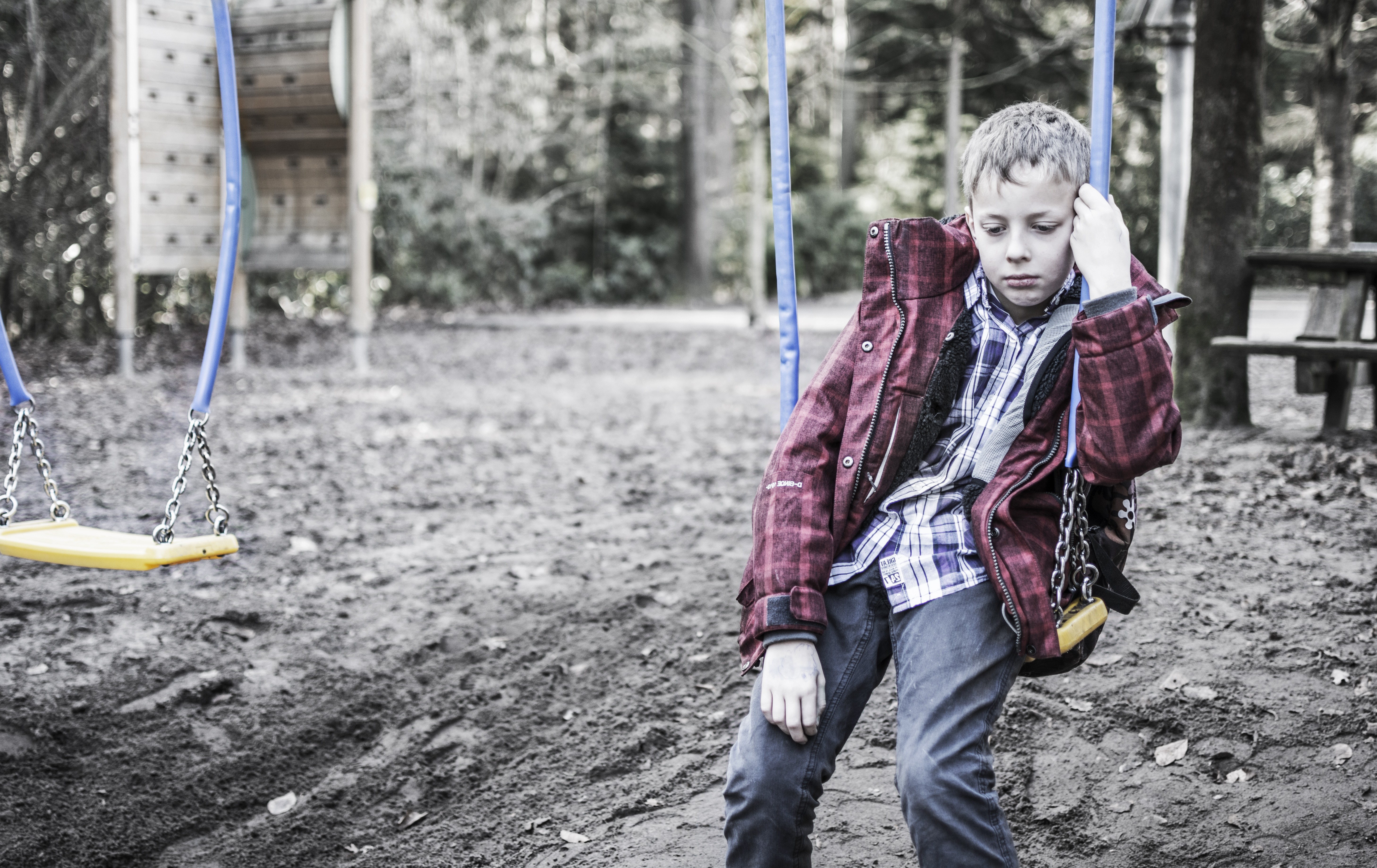
When you have all the balls in the playground you can't play anymore - Source
The image is once again excellent, I would add that our economy is based on a market economy. The market economy is based on the purchasing power of consumers. What neo-liberalism roughly says, again I paraphrase, neo-liberalism says: remove the regulations and lower the tax rates to the minimum. And they do not do that to please a demonic spirit, there is a logic behind then their logic, and on paper it can stand: it is that the money that the organizations will thus generate, will be reinvested to recreate, to revitalize the industry or the organizational sector. That’s the spirit.
We now know that it works almost not. In the very short term it will work, in the very long term there is a concentration of wealth which is clear and manifest. What Robert Reich and the more left-wing economists affirm is, on the contrary: in a spirit of market economy and consumers, it is to consumers that money must be given. They are the base.
How do you do that? You subsidize school projects, you subsidize university networks, you refinance health networks, you redistribute wealth. Then, when you have good infrastructure, you finance and you support the consumers who are first and foremost citizens. Now the economy works great.
And he shares his personal example: he was a middle class child who was able to go to university because the university was subsidized. He says today he would not be able to afford the university studies he did. All because the State with a capital S has decided not to redistribute wealth or to redistribute much less.
Again, you see it in the documentary, there is a millionaire, obviously a friend of Robert Reich although they do not mention it. He tells him: “Listen I am a millionaire; I don’t even know how much money I have made. I have a company that makes beds, mattresses, pillows. I have 3-4 factories in the world, I have 15% of the market, well, last year I made 35-40M, I have no idea. It is my accountant who takes care of that, I make 4-5M of interest here and there. My money is all over the world. I find it ridiculous no one makes me pay taxes. I find it ridiculous because even if I am a multimillionaire, how much do you think I buy mattresses and pillows per year? I may have 4-5 houses; I would not buy a million pillows and a million mattresses. You have to give the money back to a million people so that a million people buy a million mattresses.”
So, he illustrates it there in 30sec. And it is here where financial literacy, economic literacy, literary culture are again keys that are not just nice-to-have, they now are must-have, we must have these keys.
The world is becoming more complex, it is not for no reason that one begins his life as a citizen and his career when he’s between 25 and 30 years old. I mean in the Middle Ages we started our career at 7 years old.
You became apprentice and off you go.
Yes at 12 you are already a pro, no matter what you do in the field or at the bench. That was your life. Life expectancy was maybe 35 years. Life was relatively simple. Very hard but very simple. If you take an infant today, the time is very long before the day he votes and pays his first taxes. This implies that the keys become more complex, but the keys are non-negotiable.
I would add that they are non-negotiable because at the risk of not having them, there will be asymmetry with potentially a restricted group of individuals who have all the keys or at least a large part of the keys. Meanwhile a majority of the population has no keys.
There you face a social situation which is completely untenable because people can not live without the keys of knowledge and just be mindless work beasts forever. And so, if we take a wrong direction, it will eventually explode in a certain way. Socially, there will be tensions which we would like to avoid because collectively we’ll be less happy.
The Human is a Ball of Emotions
We live with many illusions. My first job is historian. It’s what I did first in my life. so I make a lot of references to the past because I think that we have the chance to go and learn from our past collective experiences. We forget humans are first and foremost a ball of emotions, a ball of needs.
We think we are Cartesian. We think we are objective. If we were a Cartesian species there wouldn’t be a thousand car models. There would be a model for citizens, a model for firefighters, a model for trucking. There wouldn’t be a red and a blue model. These wouldn’t exist, we would be Cartesian, we would all drive a Corolla. Why does Ferrari exist? Why? Because we’re not Cartesian.

If you thought humans were Cartesian - Source
Life is not Cartesian at its core, it is experimental, it is different with mutations and changes. Nothing is mathematically aligned in real life.
On the contrary we will put a varnish of Cartesian explanation on decisions that are absolutely not. And behind that, hide the famous three needs that we talked about earlier, and we all have these needs. If you lock people up figuratively or literally, behind barriers, if you deny or harm the quest to find answers to these needs of the individuals, you’re out for problems.
You go against nature and that’s very hard.
It’s going to blow up. We know in history that it has been revealed a thousand times. A thousand times we wanted to create apartheid situations and it exploded. We know it. But we are fighting against power, against the forces of “me I want more”, we are fighting against small groups who want to control information, control power, control the army, whatever.
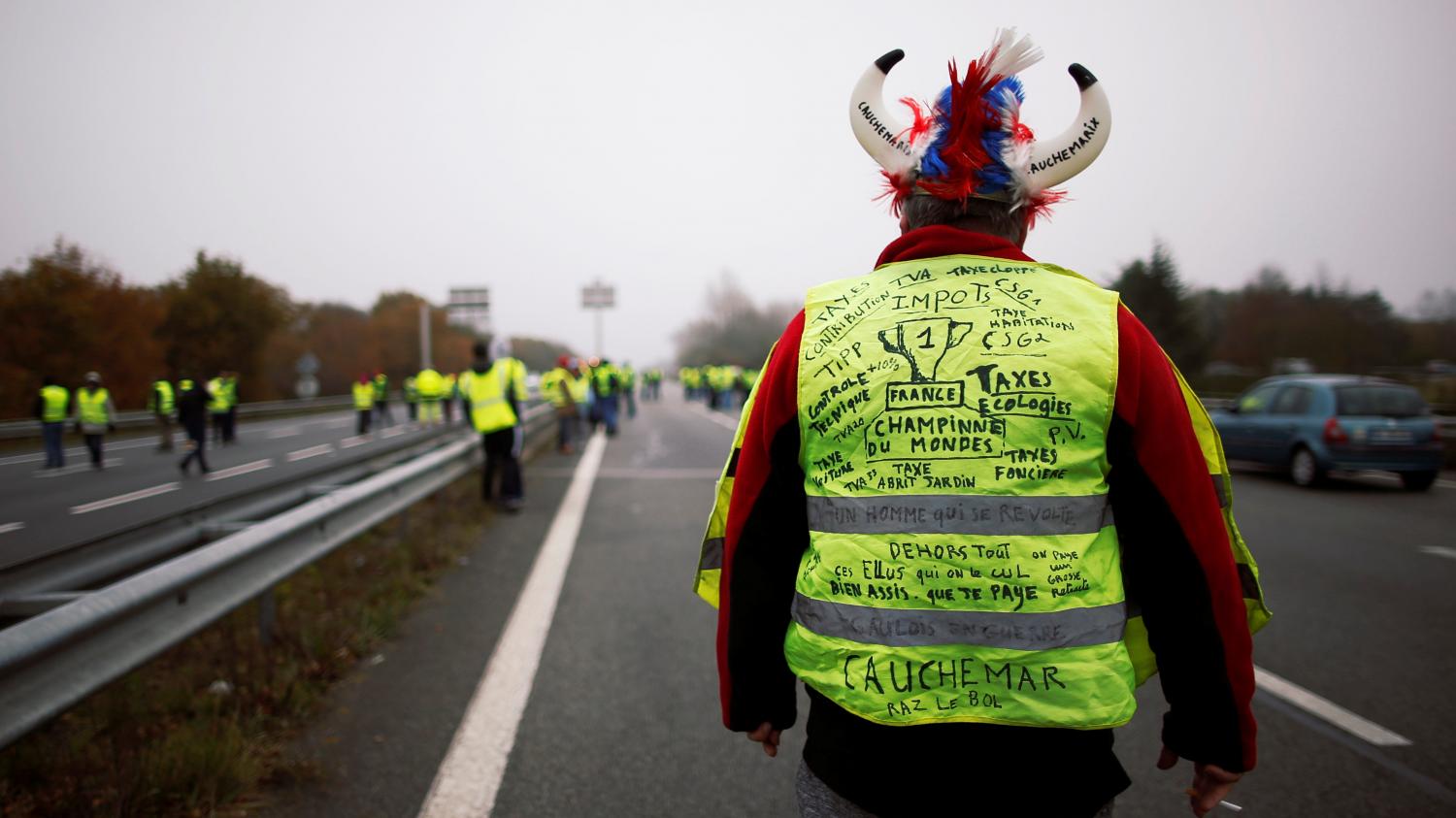
When people's needs are not met they end up rising - Source
But the human is fundamentally a being in search of meaning and who has the extraordinary faculty of inventing stories.
It is a beautiful way to describe a human.
When you have people with these two capacities, these forces, you can create extraordinary beautiful things and justify extraordinary ugly things. But basically, we look alike and our systems are as beautiful and imperfect as we are.
And we learned from our mistakes, we are fortunate you and me to live today. We have roughly 200,000 years since homo sapiens sapiens. 200,000 years of history. There are obviously holes in this story, there were fewer books at the time of cavemen but still we know we are heirs of 200 000 years of history. And what saddens me is that we always do the same bullshit.
But at higher scales which makes it more dangerous.
On a larger scale but at the same time we have the answers if Sweden exists, and I mention them a little, it’s a wink. They have their own challenges, but for the sake of conversation let’s talk about Sweden which is a kind of societal equilibrium somewhat idealized. If Sweden exists it is because we know the answers that work.
But at the same time, there is Sierra Leone which exists where life expectancy is perhaps 30 years old. So, on the same damn planet at the same time you have two countries where you have the two extremes of humanity that coexist at the same time.
We are a bit far from finance at the moment.
Still very interesting though.
Thank you for the exchange and the opportunity to do so, which we do not do often enough. Regarding that, thank you for this space that you created for the two of us.
Finance became complex. Besides we talk more and more about the financialization of the economy. This idea where we create products which add low value in real life but have a huge value potential in financial life. I think about buying short no matter what product or stock: it creates very very little or no value, but it can make people rich. So, you know there is a disconnect with time that has appeared. A disconnect that appeared because there is this deregulation.
The paradox is that if you want to have traffic flow in your city, you have to put traffic constraints.
Constraints Are Requirements for Growth
This is a beautiful image. It is a very beautiful image in fact: if you want to have a smooth traffic in Montreal, you have to put red lights in a few places. Otherwise it is chaos.
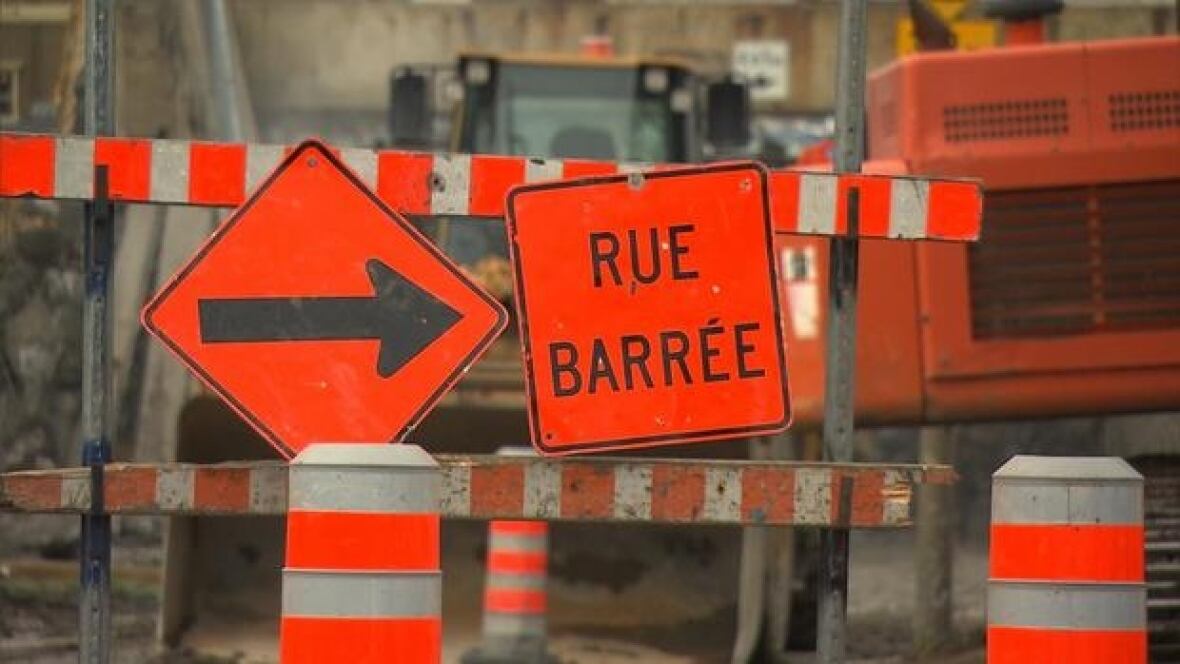
Except in Montreal, you don't avoid traffic jam - Source
It’s a bit the philosophy of compliance and of regulation in general. We quickly understood that Adam Smith’s famous invisible hand of capitalism quickly disappeared because there was a very strong propensity to concentrate power, money and capital. So, your invisible hand which was due to the fact that there was competitiveness between the players and which made it possible to create this invisible hand, we know Marx revealed it to us, we know that there is a monopolistic concentration eventually. We need constraints. This is the reality.
It goes back to the question of wealth redistribution in the sense that collectively decided redistribution, is a constraint on some people. Because naturally if we say you can not have money above 1 billion $ and everything which is going to above that number will be redistributed, you are constrained. It is a constraint that we impose on ourselves as a community, but we need it because otherwise we have all the social consequences we have described.
This notion of constraints is interesting because we could draw a parallel with nature in general: an ecosystem, a forest for example, implies constraints. If the deer eats all the young trees, there may be no trees next season and he will starve. Nature is forced to self-constrain by certain measures to be able to grow and evolve.
So, we could imagine that the human species must collectively think about these questions of constraints at the risk of destroying itself through a big war or large social tensions or ecological collapse.
I come back to your bridge between the individual psychology and collective behavior and the impact on the economy and finance at the start of our conversation. One of the jobs I do is to support people in career transition: I support people who want to change jobs and who want to have promotions. I’ve been doing this for ten years. I met several hundred people. I can tell you that the first reflex of people, whether it is people coming out of university who are looking for a job or people who are 45 years old who want to have a promotion, their first reflex, their first instinct, their consecrated expression is “opening doors”. We are told from a very young age, take such training, it will open doors for you and, hey go to high school, it will open doors for you. Go to college, it will open doors for you. We always want to open doors. This somewhat naive idea that the more options we have, the more happiness we have, the more positive the outcome will be.
Whereas this is not how our mind works and it has been proven now. There is an excellent TED talk on the Internet by a Harvard teacher who summarized in 20 minutes the result of her twenty years of research on the topic. Roughly what this teacher says, something I lived with my job, is that one of the first steps is to limit the options.
Ha-ha so the guy comes in saying I want lots of doors and you say “take two, maybe three”.
Two or three, and it’s totally counter intuitive. People say who the hell is this guy? I was referred to him but obviously people were mistaken. The more choices we have, the less likely we are to be happy with the choice we are going to make. Because we will always have in mind the idea that there were other possibilities, that the grass was perhaps greener by the neighbor.
Oh, a simple analogy I imagine is the menu of a restaurant: if you have a menu with lots of plates you’re not going to eat better. You’re going to have a plate and maybe be distracted by the idea of “did I have the right dish?”, while technically you simply came to eat at the beginning. If you would have had only one dish on the menu, you would have been happy too. It may be a way to think about how constraints may be welcome.
This idea is that overall, we want to have options but it’s not really for our own good. We work relatively well when we have relatively few options. It’s true for children, well I have no children, but I have a nephew. At one point I bring my nephew, he may be 7 years old in a toy store and I tell him take what you want. He started to cry after ten minutes because he didn’t know what to take. He had too many choices and then his mother, my sister, said to me “But no, you idiot, you identify three toys then you tell him to choose which of the three”. He will be happy. You simplify the process.
Interesting I never thought about it.
How Behavioral Constraints and Happiness Are Linked
Yes, the constraints are interesting. Limiting our choices, so imposing constraints, brings us more happiness in fact. You know international studies on happiness reveal about two or three things and they are always the same. To be happy, we have the recipe, we don’t have to be Einstein or reinvent it. You must have a job that you know well and that is relatively valued in your environment. If possible that has a material aspect to it. There is an effect, the notion of labour, the notion that one can touch, see smell, hear, taste what he does.
So, the ideal for example, is to be a baker in a small village and make the village bread where everyone recognizes your work. You materially touch things: you touch flour, you smell yeast. The body, the senses need to be used, to understand but through the body this embodied notion of the profession.
In your community, you are recognized as being the baker. So, this is your function, you have a function within the community. Then people appreciate what you do so there is the aspect of social affiliation, recognition, sharing, being a good fit the group. And that’s happiness.
We are living more and more alone. Oh yes, I forgot the most important, to be with relatives with a close social circle as strong and as loose as possible, as long as possible. Your life expectancy will go up, your hope of happiness, your income, everything will follow. We have the recipe, we have it. What are we doing? What are we doing today? Who is the Canadian model citizen?
He stays in a big city with few or no children. One person in two in a big city is single, so no spouse. For the close social circle we are all overworked and tired. Our work is often behind a screen. Materiality is not present.
It is not for nothing that there is a very high consumption of anti-depressants and anti-anxiolytics in our society. They exist and they are effective. And good for you if you need it, it is a help. But there is a fairly significant use of legal or illegal drugs as a crutch and we know why.
And it’s interesting because it relates to the constraint in an ecosystem. If you take it at the scale of a body and an individual, the constraints that you must impose on yourself to be well is to say no to different kinds of activities. Because otherwise you will be too busy running everywhere, you will be tired, you will not have time and you will enjoy everything less. And this is something that I personally started to understand over the past months: being able to say no to all kinds of activities makes you happier. Instead of being busy 7 evenings out of 7, you are busy 3 or 4 evenings out of 7 you will better enjoy each of the evenings that you live, and you will enjoy resting three evenings.
It is interesting because we see this transposition from the individual level to the society. If the individual is not able to restrict himself for his own wellness, the same for society. If society is not able to restrict herself, limits will be hit. The same type of pattern repeats on different scales.
Religions and Traditions as Constraints for Cohesion and Community Growth
All human civilizations want to create meaning because we are beings endowed with imagination, with creativity, we are story tellers in search of meaning. It’s a bit what I said earlier. All societies have arrived at the creation of religion, monotheist or polytheist, no matter where in the world and historical period. What is a religion?
A beautiful story.
It is a beautiful story, but it is also a situation of constraints which are called the rituals. They structure relationships between men and women, young and not so young. They define the relationships with the deity in question, with nature. In short, rituals structure and constrain the group.
They are self-invented constraints. Because there is nothing theoretically at the level of physics, astrophysics, chemistry or biology, which obliges us to wear a certain type of clothes. There is absolutely nothing that requires us to go to school, to read, to drive cars. All the codes that we invented in our societies are codes that we invented ourselves for living in society. But basically, at the physical, biological, chemical level, well we could still be hunter-gatherers and we would not be more unhappy. Yes, we would have a lower life expectancy. Yes, we would be weakened against illness, injury, etc. But we invented constraints. We did it for a reason: to grow, to be happier, to go further, to work better together, to live better together.
Yes, let’s imagine a hunter-gatherer tribe who meets another tribe. If the whole new tribe wants to coordinate, if instead of being 50, they want to be 100, they must set constraints of space, of respect for this or that in order to grow.
So we see that constraints are not just a negative thing saying “oh well you’re doing less”, they allow us to do more in fact. I think that explains a little bit the emergence of religion: these kinds of constraints have allowed societies to coordinate better and grow. Now we are at another level of coordination, really much larger. Coordination evolves exponentially and we face the same questions we may have asked ourselves 3000 years or 10 000 years ago.
It means we have to think about collective constraints to be able to go to the next step. That step may be, or not, the last one where we finally realize that to be collectively happy, we must share the wealth. That to be collectively happy, it is necessary to take time and slow down. Maybe we will arrive at a higher level of humanity. Maybe we are at a key moment in the history of humanity between two extremely diverging paths.
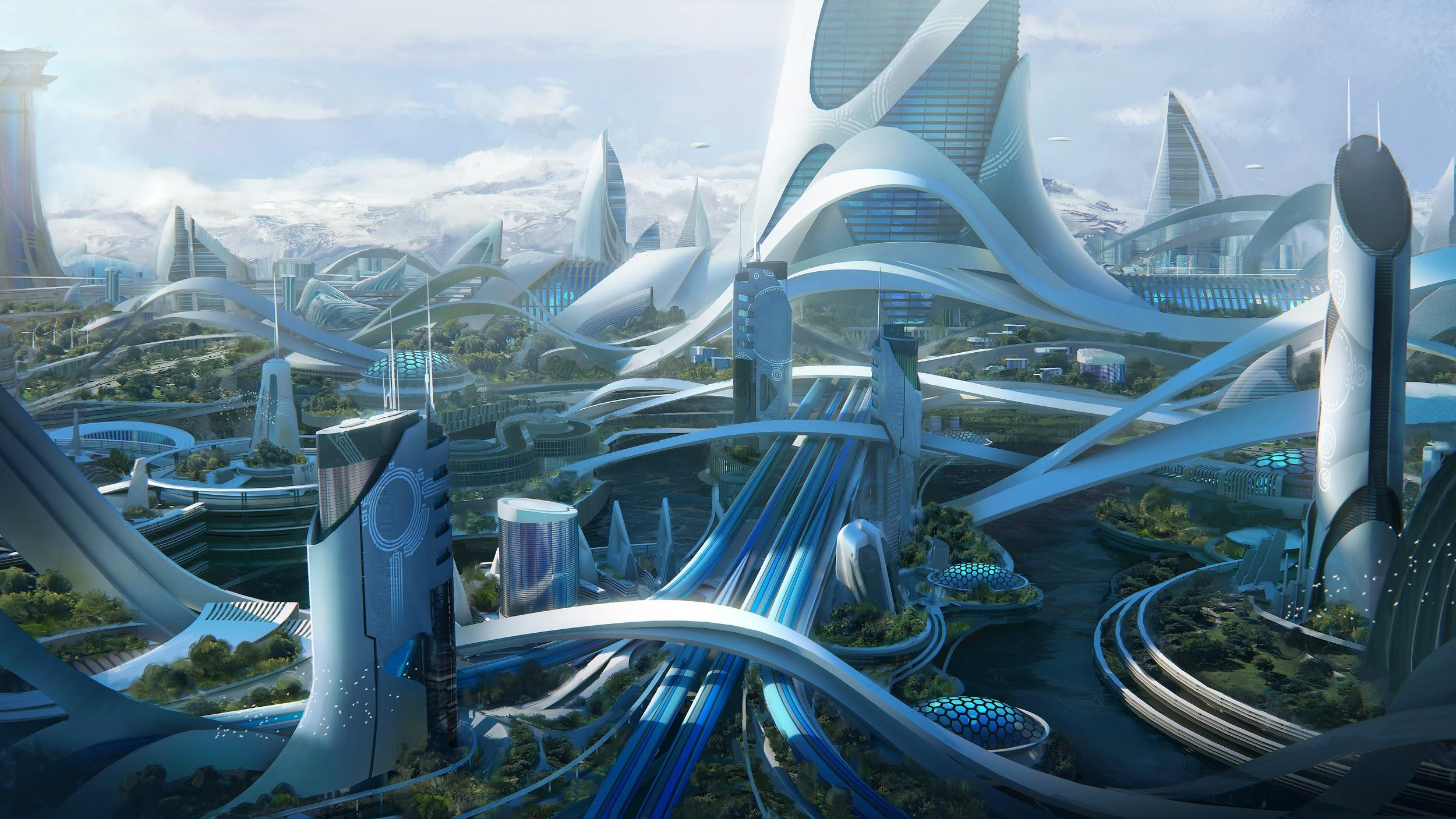
One of the future ahead - Source
How Society Imposes Biological Stress Disrepecting Our Physiological Constraints
It is a very beautiful, very good analysis that you do in my opinion. Out of 200,000 years of modern human life, 99% was spent in clans of less than a hundred individuals where roles were very well defined, where life expectancy was extremely limited, where the ecological footprint was relatively small. It has only been since 1% of our history that we live with what we have around us, with the capacity and creative and destructive potential that we have at the environmental level.
Although we see that there is a wealth distribution and we see that poor countries are less poor than 50 years ago, it is done at an enormous cost to the environment, to society and to inequalities. I’m not sure it’s sustainable and that this curve will continue until the moment most humans are able to aspire to a certain happiness, a certain quality of life. There will simply be no more planet to support the consumption and the production which is behind.
I think it took millions of years to create the brain we have, which in turn creates the civilizations we have. I would be more inclined towards a kind of global vision but in more local, more limited enclaves. Imagine a house where there are 100 people, it becomes kind of a clan, a universe where people have their codes and respect each other. These people live in a society, in a world, in a broader planet but I think an interesting model could be this idea of reforming human groups on a human scale. Because we are not made to work sitting 50 hours a week behind a screen. We are made to live 25 years and be killed by a mammoth, that’s our biology.

Not you guys! - Source
Let’s look at the stressors today. If you look at the prevalence of heart problems and the pathways obstructions by cholesterol, all these are direct consequences of repetitive stress episodes. If we set ourselves back in the skin of cavemen who hunt, the stress mechanism is extremely effective. You have a strong feedback loop: you have an adrenaline rush which dilate your vessels, your arteries, which pump more blood, more oxygen, you have a very strong reactivity over a very short period of time and you’re having a rush of natural drugs to flee, attack, defend yourself, survive.
Then you get some rest.
The knock-on effect is that you have cortisol secretion, you have to pay the bill afterwards. You can absorb the bill because you are not in a daily survival situation. The stress is in between the environment and the body. When you are in front of a computer 50h a week, it is not a mammoth attacking you anymore, it is a colleague who makes a comment, it’s a boss who has too high requirements, it’s the market, the customer. It’s the same mechanism kicking in as when you were attacked 200,000 years ago and it’s the same bill that you pay every day.
We are not made for that. We are made to be hunter-gatherers. We are transforming our nature but evolution shows us that it takes thousands of years to transform biology. We are in a transformation process. Without being pessimistic, I don’t believe that we are going to see the end of this process. We will have to change our behavior before our biology. We will have to change our aspirations in relation to the environment because the planet will not be able to survive 25 billion of humans who live like a North American.
So, you know the fundamental biological mechanisms, the machine that we are, the entity that we are, has created an environment in which it fits less and less. It’s a bad environment for our biology. If it doesn’t change, it won’t work for a whole bunch of reasons.
Ending Words and Idea Labs
I have 5 minutes left, I’m sorry.
Perfect we can conclude on that, it was a great discussion.
Frankly, this is a very deep discussion, I honestly welcome this initiative. We should be able to do it more often. I say we but you, me, humanity whatever, we should do exchange groups like that, non-partisan, you don’t need to be right or wrong, the goal is just to exchange.
I don’t know if you know Tim Urban’s Wait but Why blog. He retraces a little bit the history of humanity, of society, all these reflections we had, he talks about it in great length. And he introduces these kinds of discussion groups which he calls “idea labs” where the goal is just to discuss to understand how to move towards the better collectively.
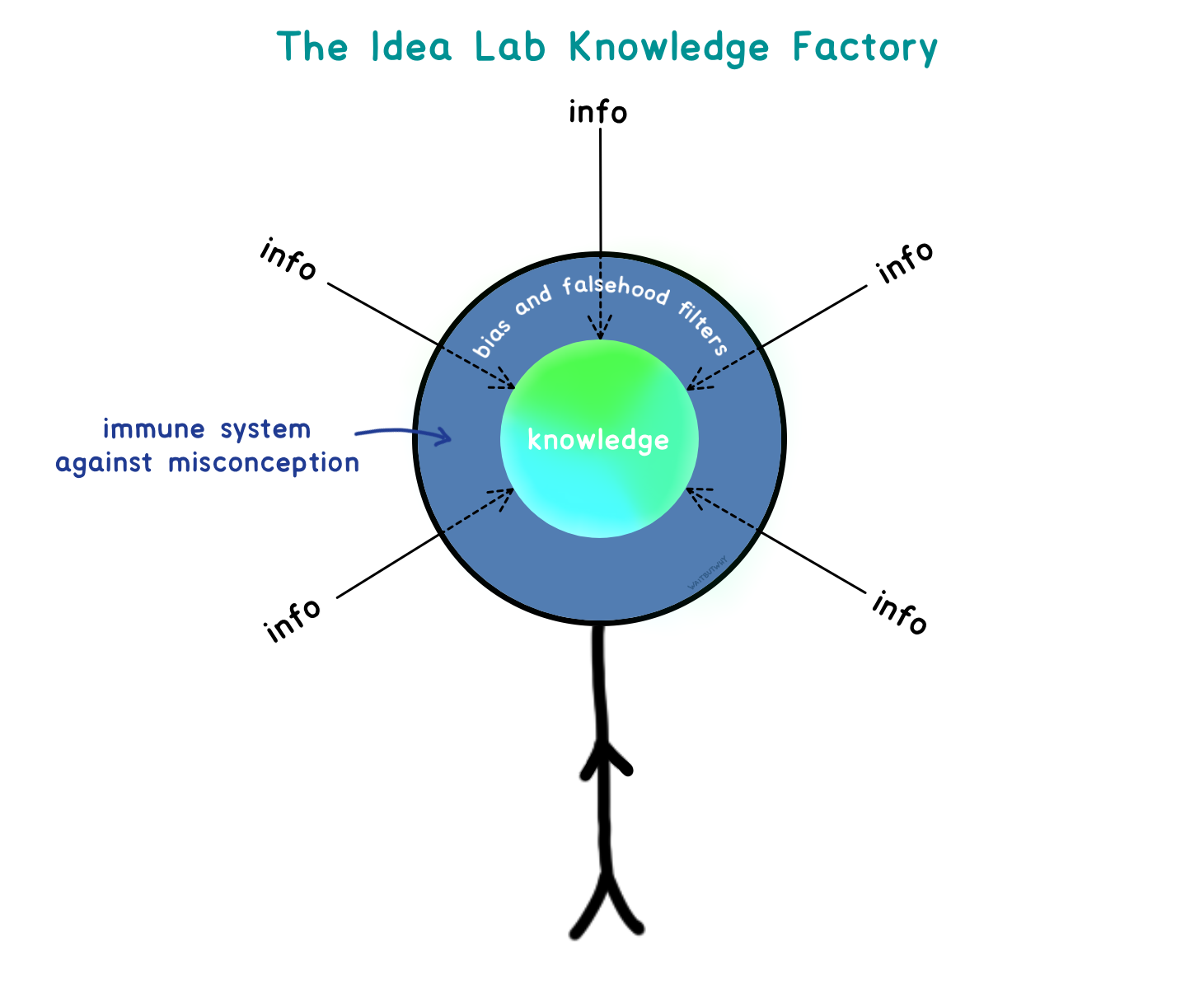
Tim's cartoons are the best, check him out
We could create places of exchange as you say, non-partisan, where we are simply looking for the truth by not having to be afraid of making mistakes. You come share what you learned and if someone else tells you I think that for such and such reason you may be wrong, you leave with an improvement of your idea. But it’s not a personal attack, everyone would put their ideas on the table and then the ideas fight, we take the best and we each go home with the best, the winning idea somehow. This is what he proposes.
Send me the link, I’ll share you the link of another book I read. The guy is a PhD in sociology anthropology. Roughly speaking his idea is, summed up in a simplistic way, you can look at what’s coming without having a crystal ball. A bit like the shadow behind you indicates you where the sun is placed, if you take a look at the impact of your past actions today, you may have an idea of what is coming ahead. When you look back and say ok there the impact of those actions was huge, if I continue, I hit a wall. Meanwhile there the impact was less strong so maybe this was a better path. So, the present acts a bit like an interface between the future and the past but in concrete terms, there is a small interstice between the two where it is possible to adjust.
I like these little left-winged conversations here. Plus, I had this observation in the steering committee here: it happens too infrequently, here or elsewhere that we really take the time to think really. We are often in action, we feed on action, we gargle with action, we motivate ourselves in action as if action was self-sufficient.
Yes, but partly. You have to think, you have to think alone, you have to think collectively.
What you do you precisely is imposing constraints on yourself, you give up something to be able to have time and that time, yes you devote it to meet people, to make a blog but you also devote it to maybe just think, to do something else and it’s often in this slightly dead state that you that you have the greatest realizations, that you build the deepest links, the most unexpected that ultimately make you advance. (I don’t work on Fridays and favor free time over money)
To take an analogy it is as if we were very happy to hunt the mammoth all the time. But once the mammoth is hunted, it is necessary that the tribe meets in the evening around the fire, to tell stories about the tribe’s future. If the tribe is moving non-stop, it can never tell a new story, it never thinks about changing the history. While we know that if we look at our shadow right now, we’re going to hit a wall. We have to create the new story now, collectively, so that the species ultimately fare better.
And that’s what is our strength and what will make us get through it. Basically it’s only after the fact, after we’ve taken a slap on the face that we start to give it meaning, to justify a meaning. If we have no meaning we head towards suicide.
The surviving psychologist of the concentration camps, I forgot his name you will excuse me, brought this principle of resilience which he saw him in the camps. He wondered why were there people dying, why were others surviving?
He analyzed that with his psychiatrist viewpoint and with a little hindsight. He associates resilience to the reliance on meaning, which is his book title by the way Man\’s search for meaning. It is a truly touching and overwhelming book. The message essentially is we want meaning; we are seekers of meaning. With meaning, we live longer.
Fortunately, we have the ability to innovate, to invent, to imagine, to tell stories. Resilience is our ability tell a story during and after the facts. And the story no matter which one, if we believe in it, it is the right one. We have that ability to go beyond reality, to take blows on the face and to continue, individually and collectively. It’s just that there are blows that we inflict on ourselves. Yes, we have the ability to heal but if we hurt ourselves more than we heal well we are in deficit. I have to leave you on that, sorry.
8525 Words
Apr 1, 2020